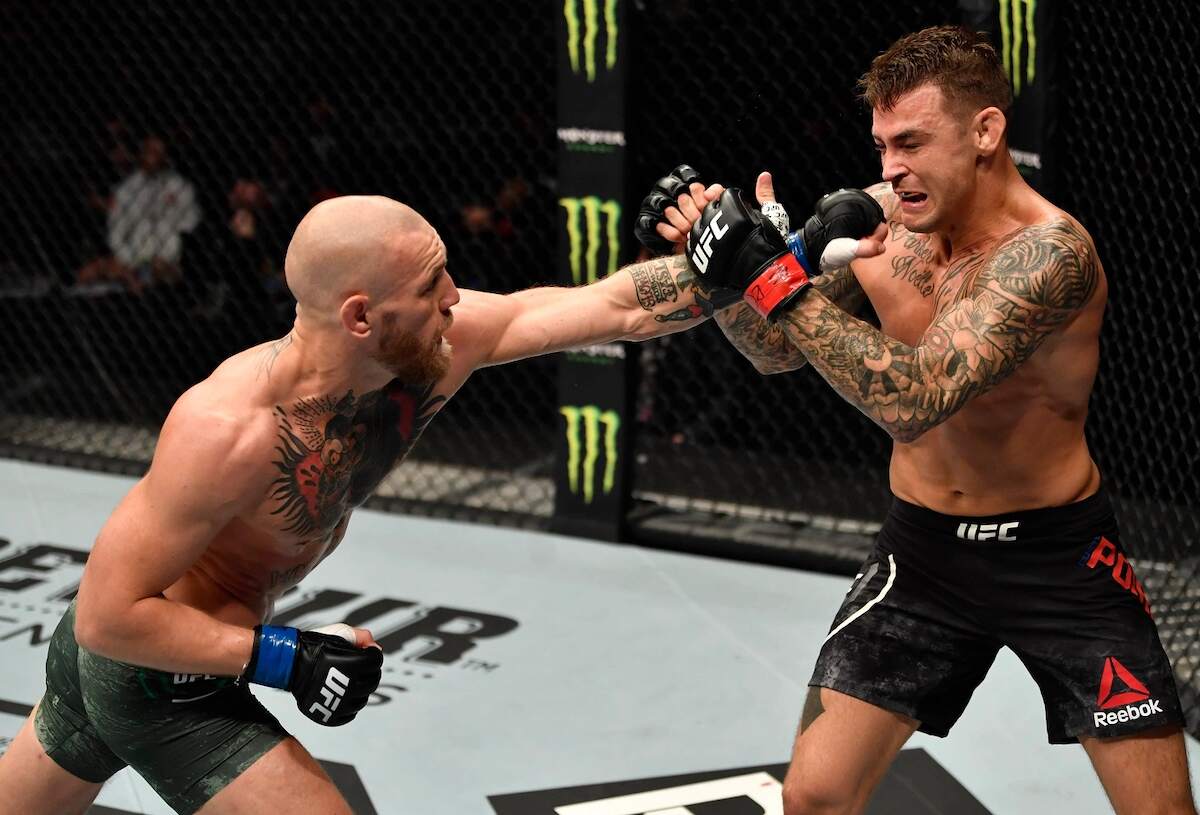UFC
How Do UFC Bonuses Work?

When Dustin Poirier defeated Conor McGregor by TKO in the second round of their lightweight fight at UFC 257, it was a substantial personal accomplishment for the 32-year-old Louisiana native as he avenged his 2014 loss to the Irishman.
Winning was also undoubtedly financially lucrative for Poirier. In 2021, UFC president Dana White finally provided insight into parts of the payment system for fighters, which he’d never discussed in detail before.
UFC fighters’ primary income is from their contracts
Attracting many of the biggest names, the UFC is best known among mixed martial arts organizations worldwide. However, it’s not as though the athletes come and go as they please. The UFC keeps a stable of fighters under contract to ensure the right balance of competitors in the eight men’s and four women’s weight classes.
In most cases, the contracts guarantee UFC fighters a fee for showing up at the necessary weight and stepping into the octagon. It’s typically a five-figure sum that increases as fighters continue winning and move up the UFC rankings. Those athletes also often have deals that double their money for winning.
However, the deal works differently for the cream of the crop. The men and women who headline the pay-per-view cards command larger base salaries. Conor McGregor is said to have been guaranteed $3 million for his loss to Khabib Nurmagomedov at UFC 229 in October 2018. Daniel Cormier averaged about $600,000 for each of his three fights that year.
The tradeoff is that bonuses for winning are either small or non-existent because the base pay is so high. On the other hand, the biggest attractions have negotiated cuts from the pay-per-view sales, too.
Fans have always known about fight-night bonuses
White told the New York Post that the UFC standardized its policy in 2013 to hand out four bonuses of $50,000 apiece on each card. Two of them go to the contestants in the fight of the night, and one apiece are for the fighter of the night and the submission or knockout of the night.
Those amounts varied from card to card before then.
Combining base salaries, win bonuses, and the additional $200,000 available from each card, The MMA Guru reported that one-third of UFC fighters made $100,000 or more in 2018 when the mean average was $138,250, and the median was $68,500. Champions averaged $783,400.
Dana White has revealed another set of bonuses
Those inside MMA have known for years, but UFC President Dana White finally opened the window to the New York Post for a look at bonus money that hasn’t been discussed in the past. Besides the $50,000 payments that amounted to more than $8 million last year, White dished out another $4.6 million.
White told the paper, “Everybody who delivered on the card, I write a check” ranging from $4,000 to $25,000, “depending on what I thought of their fight.”
He explained that the largest discretionary bonus checks go to fighters who narrowly miss out on one of the $50,000 awards. With 456 fights spread over the 41 cards, the average last year was slightly over $5,044 per fighter per fight.
“Obviously, there’s a lot of money involved and, believe me, many people, including people who work for me, said, ‘If you would just say publicly what you do,’” White told the paper. “And I say, ‘But I don’t care.’ It’s nobody’s business what these guys make.”
Like Sportscasting on Facebook. Follow us on Twitter @sportscasting19.











